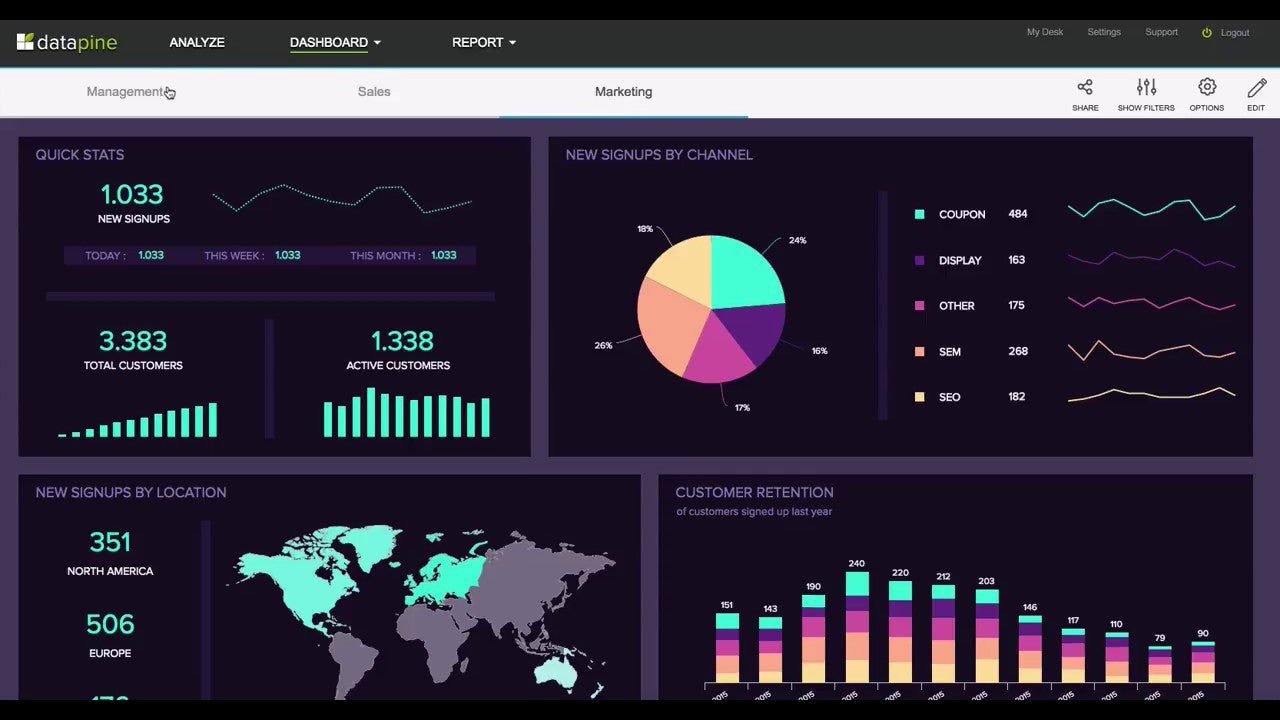Upcoming data and analytics trends in 2022
Data-driven decisions are the norm for today’s tech industry, and there is a subsequent demand for employees skilled in data analytics. Insights without actions are a thing of the past, which is why young professionals are turning to data analyst certification courses in addition to their education. The data and analytics trends shaping 2022 are insights and their necessary actions, real-time data analysis and decision-making, and implementation of artificial intelligence and machine learning, among others.
Why is it Important to Keep Up with Data and Analytics Trends and Learn Data Analytics?
Simply put, such courses help professionals stand out and have a better chance at job interviews. You would probably agree that choosing the right data analyst certification course is a top priority, as there can be courses that still comprise an outdated syllabus. You would want to learn data analytics from a course that encompasses the current trends in the market, and that’s how it should be.
Let’s look at some upcoming data and analytics trends to help you find the right data analyst certification course.
AI-powered Analytics
Artificial Intelligence (AI) has been gaining importance every year in each field, and data and analytics are one of the fields that stands to gain tremendously from its implication. AI has significantly improved decision-making quality by providing access to novel data sources. Amounts of data amassed by companies are forever increasing to know more about their target customers, making it challenging to analyse all of it correctly.
Machine learning (ML) and AI are powerful technologies that allow organisations to make the most out of valuable insights resulting from vast amounts of data. While these technologies are necessary now, they will soon be an essential part of organisations in the coming years. The number of organisations leveraging AI and ML will increase as they look to identify patterns, boost sales, and improve efficiency.
Data Fabric
Transforming current models into data fabric models allows businesses to store, locate, and leverage customer data more effectively. It serves as a robust framework to standardise an organisation’s data management techniques and provides consistent capabilities in multi-cloud environments. With constantly increasing data complexity, businesses will resort to this framework. This framework can reuse and combine various integration styles, technologies, and data hub skills.
The data fabric model significantly reduces maintenance, design, and deployment, lowering system complexity. Its comprehensive approach makes for more relevant customer experiences. Businesses get simplified access to more significant amounts of data, which means more informed decisions regarding customer behaviour and interactions.
Real-time Data Processing
Organisations want to act quickly, and who can blame them when a day later might be too late? Whether it pertains to developing a marketing campaign or something else, real-time data processing and decision-making are a couple of essential aspects within this list of data analytics trends. Businesses can no longer rely on or utilise data sets that are analysed monthly; this is how they stay ahead of the competition these days. There is a need for constant and continuous analysis of data sets in a bid to uncover underlying patterns or changes in customer behaviour.
Real-time data processing and decision-making require newfound adaptability and agility for teams to act on time and seize opportunities. The focus on real-time data processing, analysis, and decision-making will continue as businesses want to respond to changes as they arise to stay ahead of the competition.
Agile and Composable Data & Analytics
Composable data and analytics infrastructure have unmatched potential in terms of scale. The reasons for the popularity of composable and agile data and analytics are comprehensive resource management choices and automation options. Composable infrastructure helps speed up crucial business processes while also circumventing overprovision problems.
The data fabric model acts as the foundation required for agile and composable data and analytics. Capabilities such as driving DataOps and processing hardware are significantly improved, with reduced costs, by only providing data as needed and moving data to other storage systems.
Conclusion
Data and analytics aim to create a flexible, friendly, and smooth user experience by leveraging technologies such as AI and ML. The above data and analytics trends enable team leaders to connect their actions to the insights they receive, promote productivity and agility, encourage inter-departmental collaborations, and enhance the organisation’s analytics capabilities.
For those wondering how to become a data analyst, take a look at this data analytics certification course by Imarticus Learning. This data analytics certification course encompasses a vast syllabus with the latest data and analytics trends, specially designed to provide aspiring professionals with current industry practices and skills.











 Tableau consultant
Tableau consultant